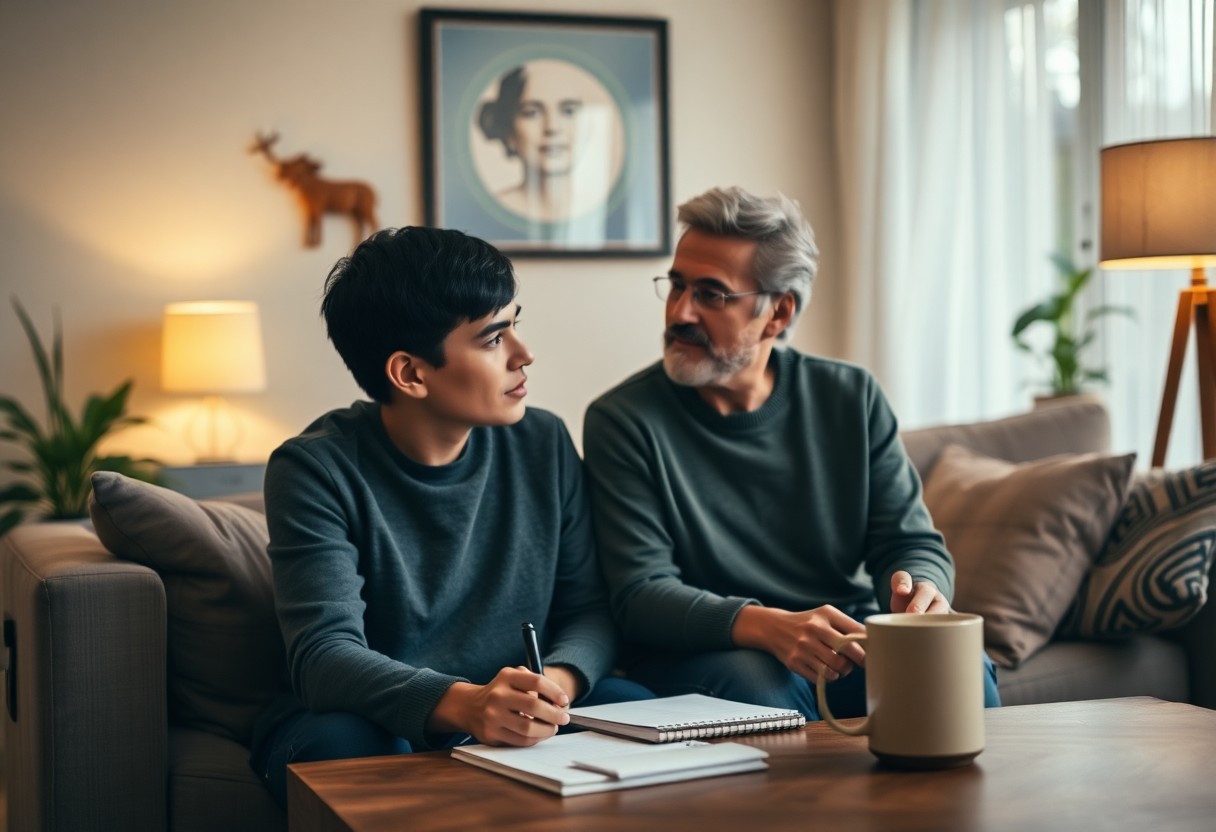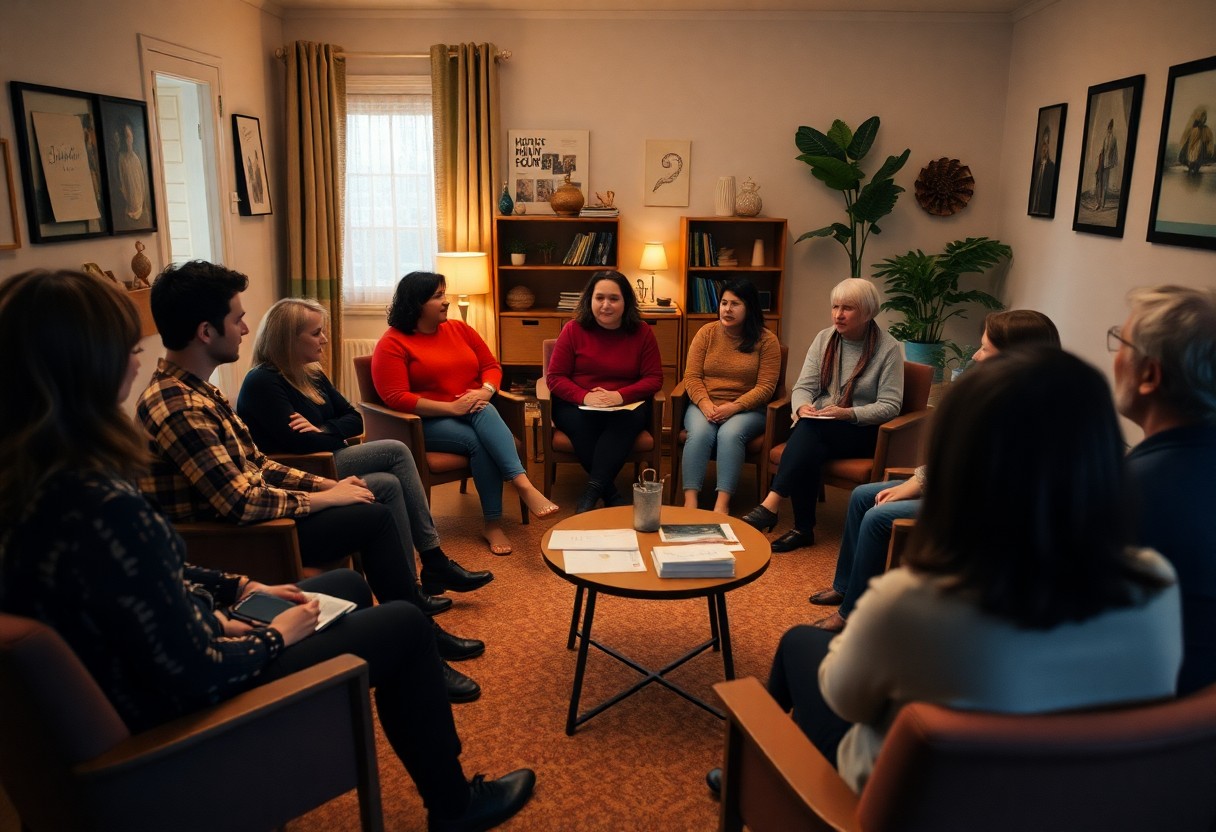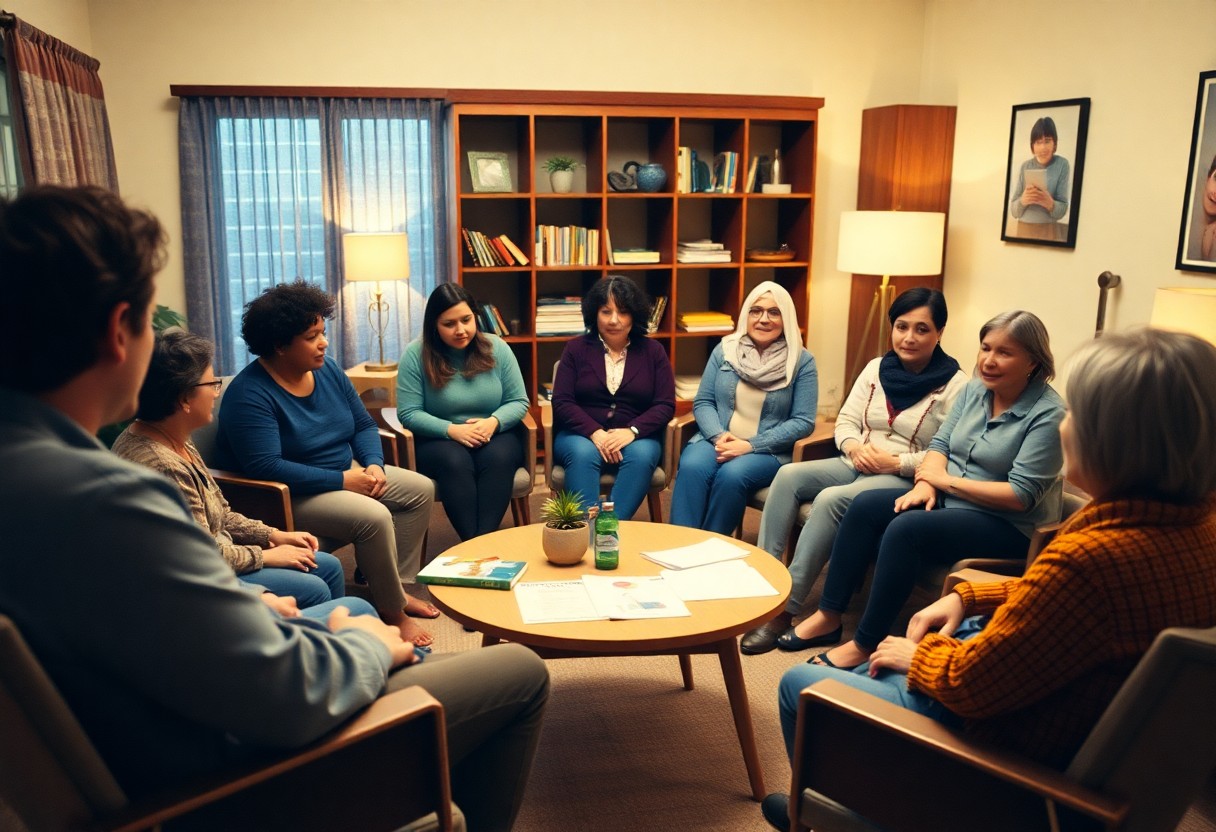Recovery from porn addiction can be a challenging journey, and your support can make a significant difference. If you’re looking to assist someone who is struggling, understanding the steps to take is vital. Begin by fostering an open dialogue and providing a safe environment for them to express their feelings. Educate yourself about the nature of addiction and encourage treatment options. For more insights on how to navigate relationships with those facing these challenges, check out Four Things to Do When You’re Dating Someone Who …. Your understanding can significantly aid in their recovery process.

Key Takeaways:
- Approach the topic with empathy and understanding, creating a safe space for an open conversation about their feelings and struggles.
- Encourage professional help, such as therapy or support groups, to provide specialized guidance in overcoming the addiction.
- Suggest setting clear goals and boundaries to help them progressively reduce their consumption of pornography.
- Help them identify triggers and alternative coping mechanisms, promoting healthier outlets for stress and boredom.
- Be supportive and patient throughout their journey, celebrating small victories and being there during setbacks.
Understanding Porn Addiction
The understanding of porn addiction is vital for supporting someone in overcoming it. This addiction often manifests through compulsive viewing of pornography, disrupting personal relationships and daily life. Recognizing it is the first step to guiding someone towards healthier habits and emotional well-being.
Definition and Symptoms
With porn addiction, you may notice a range of symptoms including compulsive behavior, loss of interest in real-life sexual experiences, and emotional distress. These signs often signify an unhealthy reliance on pornographic material, which can interfere with your daily functioning and relationships.
Causes and Effects
With porn addiction, several causes might contribute to its development, such as emotional trauma, underlying mental health issues, or environmental factors. The effects of this addiction can profoundly impact your life, leading to feelings of isolation, anxiety, and even depression.
But addressing the causes and effects of porn addiction is integral to understanding its impact. You may find that early exposure to sex or a lack of proper sexual education plays a part in your relationship with pornography. Additionally, the brain’s reward system becomes rewired, making it difficult to enjoy intimacy with a partner. These factors create a cycle that can be challenging to break without proper support.
Approaching the Individual
Now that you recognize the need to support someone with a porn addiction, it’s necessary to approach the individual thoughtfully. This can be a sensitive subject, and your care and respect will create a foundation for open communication. Timing and framing are significant, so consider when and how you initiate the discussion to foster a supportive atmosphere.
Starting the Conversation
One effective way to start the conversation is by expressing your concern for their well-being. Use “I” statements to communicate how their behavior impacts you and your relationship. This can help them feel less attacked and more understood, allowing you to discuss the issue more openly.
Creating a Safe Environment
With a sensitive topic like porn addiction, creating an atmosphere where the individual feels safe to share their thoughts and feelings is paramount. Ensure your conversation takes place in a private setting where distractions are minimized, allowing for a candid exchange without interruptions.
But safeguarding the environment goes beyond just physical space; it also encompasses emotional security. Be mindful of your tone and body language, showing empathy and patience. Encourage openness by validating their feelings rather than judging them. This approach can help your loved one feel more secure, increasing the likelihood of a productive conversation and making them feel valued in their struggle.
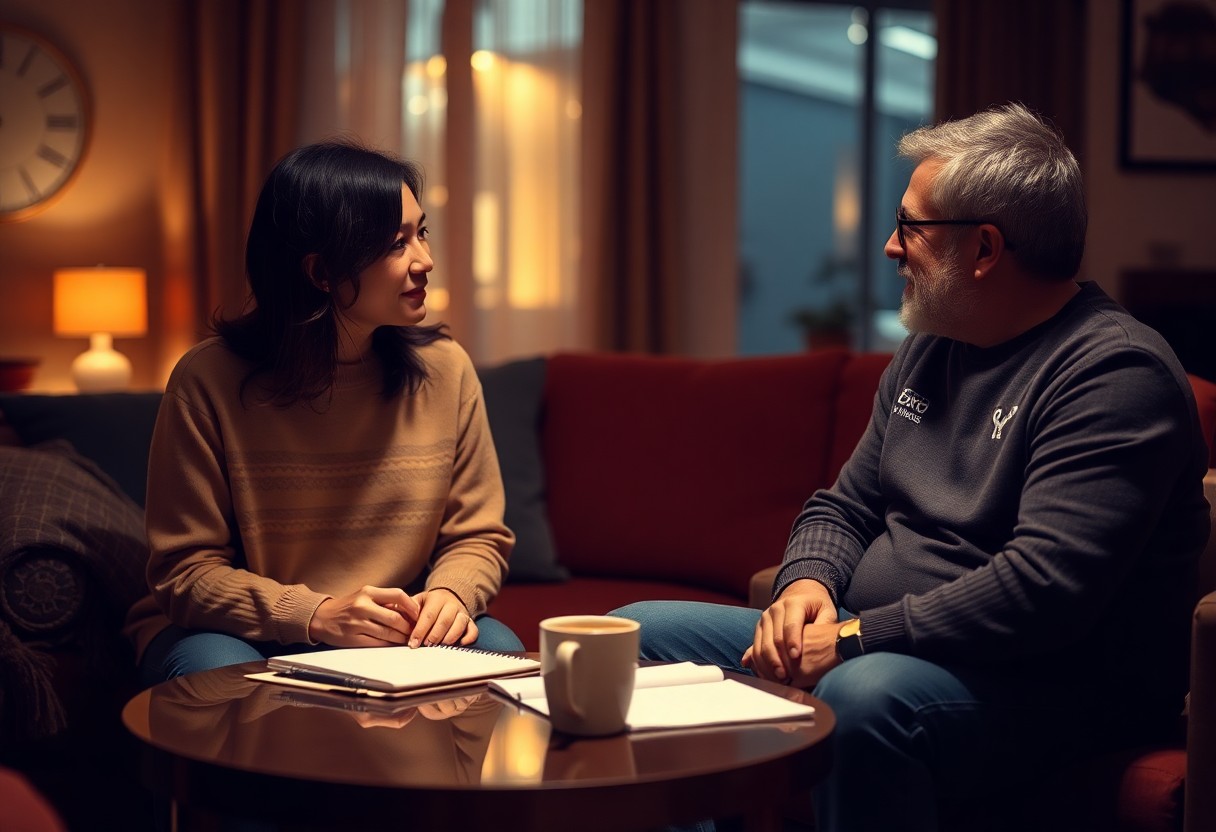
Offering Support
All individuals struggling with porn addiction need a strong support system. Be prepared to listen without judgment and offer a safe space for them to express their feelings. Reinforce your commitment to help them overcome their addiction while encouraging open communication. Your understanding can provide the comfort they need to seek change.
Emotional and Psychological Support
Between the turmoil of addiction and recovery, emotional support plays a significant role. Make sure to check in regularly, validate their feelings, and remind them that they are not alone. Encouraging self-compassion and a positive mindset can help strengthen their resolve in overcoming challenges.
Encouraging Professional Help
Behind the personal struggle, professional intervention can offer effective tools for recovery. You can gently suggest that they consult a therapist who specializes in addiction, or consider support groups where they can connect with others facing similar challenges..
With professional help, you provide them access to specialized resources and strategies to reshape their relationship with pornography. Therapists can guide them through understanding underlying triggers and developing healthier coping mechanisms. Support groups offer community and shared experiences, promoting accountability and encouragement throughout their recovery journey. By fostering an environment that prioritizes seeking professional guidance, you empower them to take significant steps toward healing.
Setting Boundaries
Many individuals struggling with porn addiction find it challenging to maintain healthy relationships due to blurred lines and unmet expectations. Setting clear boundaries is vital for both you and your loved one. It creates a safe space for open communication and helps to mitigate feelings of betrayal or resentment. By establishing boundaries, you can foster an environment of trust, allowing for personal growth and healing.
Establishing Healthy Limits
Before entering discussions about boundaries, take time to reflect on what is acceptable and unacceptable behavior in your relationship. Define specific limits regarding interactions with others, online activities, and shared devices. Be open and honest about your needs, and encourage your loved one to express theirs. This way, you can both agree on a set of limits that nurtures recovery and respects personal values.
Understanding Triggers
The journey to recovery often involves understanding what triggers the desire to engage with porn. Identifying these triggers is vital for building a healthier coping strategy. You might find that certain situations, emotions, or environments act as catalysts for cravings, making it easier to slip back into old habits.
Another vital aspect of managing triggers is recognizing how emotional states, like stress or loneliness, can lead to a reliance on porn as a coping mechanism. Being aware of these connections allows you to develop proactive strategies to address and manage these feelings. Encouraging open dialogue about triggers can also empower your loved one to seek healthier alternatives and build resilience against temptation.
Providing Resources
To support someone dealing with porn addiction, providing them with resources can be instrumental in their journey to recovery. You can guide them towards helpful articles and professional advice by visiting How to Help Someone with a Porn Addiction. This information can serve as a foundation for understanding their struggles and exploring potential avenues for healing.
Therapy Options
Behind every successful recovery from porn addiction often lies professional therapy. Engaging with a therapist who specializes in addiction can provide your loved one with personalized strategies, coping mechanisms, and a safe space to discuss their challenges and progress.
Support Groups and Online Communities
With the vast array of support groups and online communities available, your loved one can connect with others who share similar struggles. These platforms offer a sense of belonging and understanding, which can be incredibly valuable during recovery.
Understanding the power of community is crucial. Support groups and online forums provide not only emotional backing but also practical advice from peers who have experienced similar journeys. Engaging with others can relieve feelings of isolation and foster a collective effort to overcome addiction, making recovery feel more achievable and less daunting.
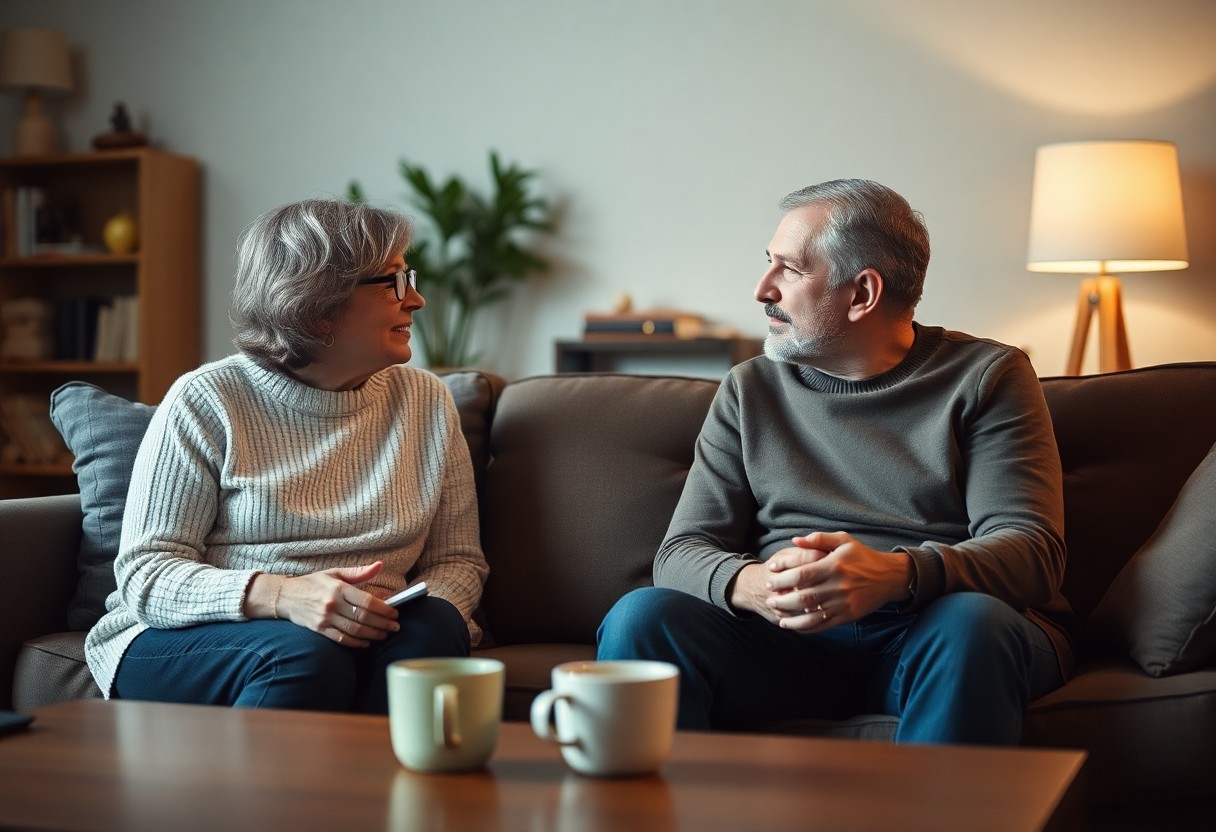
Monitoring Progress
Not tracking progress can hinder recovery from porn addiction. It’s imperative to keep an eye on both setbacks and improvements. Regularly assess changes in lifestyle, emotional state, and triggers to understand patterns that could help or hinder recovery. This can provide clarity and motivation, enabling a more structured approach to overcoming the addiction. Encourage open discussions about progress to identify areas requiring support and celebrate advancements made along the way.
Accountability Measures
Behind every successful recovery is a solid plan for accountability. Set up check-ins with a trusted friend or support group where you can share experiences and challenges related to your journey. This transparency helps you stay committed, while also providing a support network for encouragement and guidance. Regular accountability can significantly enhance your resolve to overcome porn addiction.
Celebrating Small Victories
Progress is made in small steps, so it’s vital to acknowledge each victory along the way. Whether it’s a day, week, or month free from triggers, each accomplishment deserves recognition. Celebrating these moments boosts your motivation and reinforces positive behaviors. By focusing on what you have achieved, you build a stronger foundation for tackling future challenges and deepening your commitment to recovery.
Further, honoring these small victories can serve as a powerful motivator in your journey. You might consider rewarding yourself with something meaningful, like a cherished activity or a day off to recharge. These acknowledgments reinforce the idea that progress counts, no matter how incremental, and encourages a positive mindset moving forward. Note, each step taken is a step closer to enduring change.
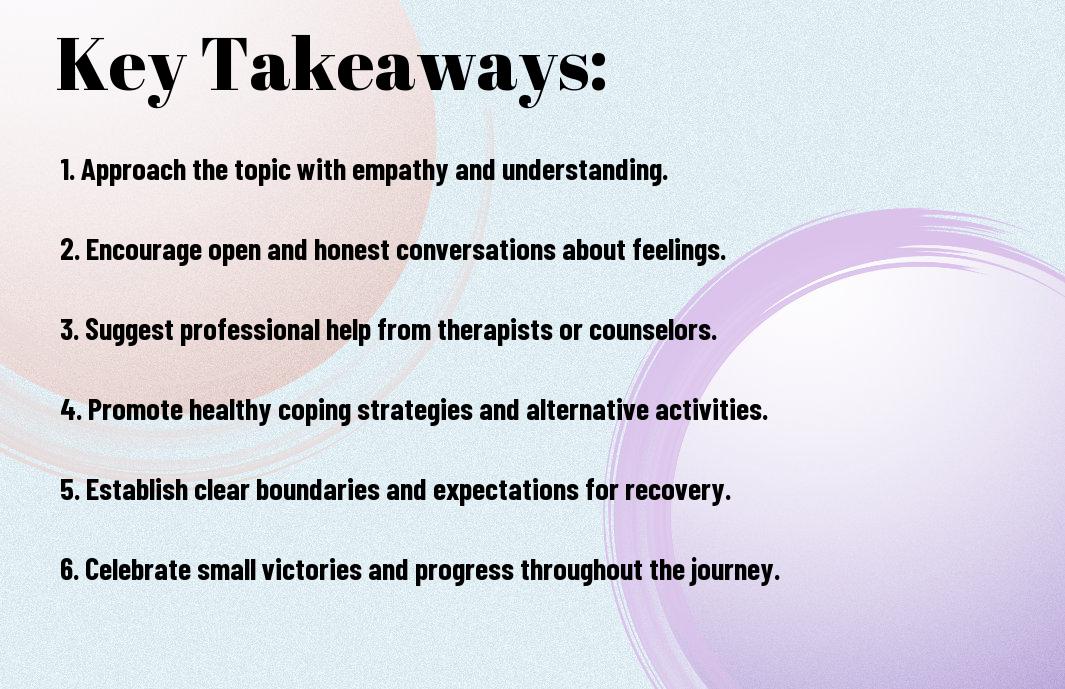
Final Words
Presently, assisting someone with a porn addiction involves a thoughtful approach that combines empathy and support. You should encourage open conversations about their feelings, help them identify triggers, and recommend healthy coping strategies. Engaging professional help, such as therapy or support groups, can be beneficial for both you and the person struggling with addiction. Your understanding and patience will play a significant role in their recovery journey, fostering a sense of safety and trust that is vital for healing.
FAQ
Q: What are the signs of a porn addiction?
A: Signs of porn addiction may include excessive time spent viewing pornography, neglecting responsibilities, feelings of guilt or shame after viewing, increasing tolerance (needing more explicit content), and experiencing withdrawal symptoms when not engaging in viewing. If someone’s daily life is negatively affected, it might indicate a problem.
Q: How can I approach someone who may have a porn addiction?
A: Approach the conversation with empathy and understanding. Choose a private, comfortable setting and express your concern without judgment. Use “I” statements to share your feelings, like “I’m worried about you.” It’s important to create an open environment where they feel safe discussing their experiences.
Q: What professional help is available for porn addiction?
A: Various forms of professional help are available, such as therapy with a licensed mental health professional who specializes in addiction or compulsive behaviors. Cognitive-behavioral therapy (CBT) is effective in addressing the underlying issues. Support groups, both in-person and online, can also provide community and understanding among individuals facing similar challenges.
Q: What role does setting boundaries play in helping someone with a porn addiction?
A: Setting boundaries is necessary for both the individual struggling with addiction and those supporting them. It can help create a structured environment, reduce triggers, and support healthier behaviors. Encourage them to limit access to devices or content that might provoke the urge to view pornography, while also being supportive of their recovery journey.
Q: How can I support someone through their recovery process?
A: Supporting someone through their recovery may involve listening to them openly, encouraging them to seek help, attending therapy or support groups with them, and being patient as they work through their challenges. Celebrating small achievements and being there during setbacks can strengthen your relationship and motivate them on their path to recovery.
Q: What are some healthy coping mechanisms to suggest for someone overcoming porn addiction?
A: Suggest healthy coping mechanisms such as engaging in physical activities, pursuing hobbies, practicing mindfulness or meditation, and building social connections. Encouraging them to replace their viewing habits with constructive and pleasurable activities can also help redirect their focus and fill the void that might have been occupied by porn consumption.
Q: How long does it typically take to overcome a porn addiction?
A: The duration for overcoming a porn addiction can vary significantly from person to person. It may depend on various factors, including the individual’s level of commitment to recovery, support systems in place, and underlying emotional or psychological issues. Some may see improvement within months, while others may take longer. It’s vital to approach recovery as a journey rather than a set timeline.
